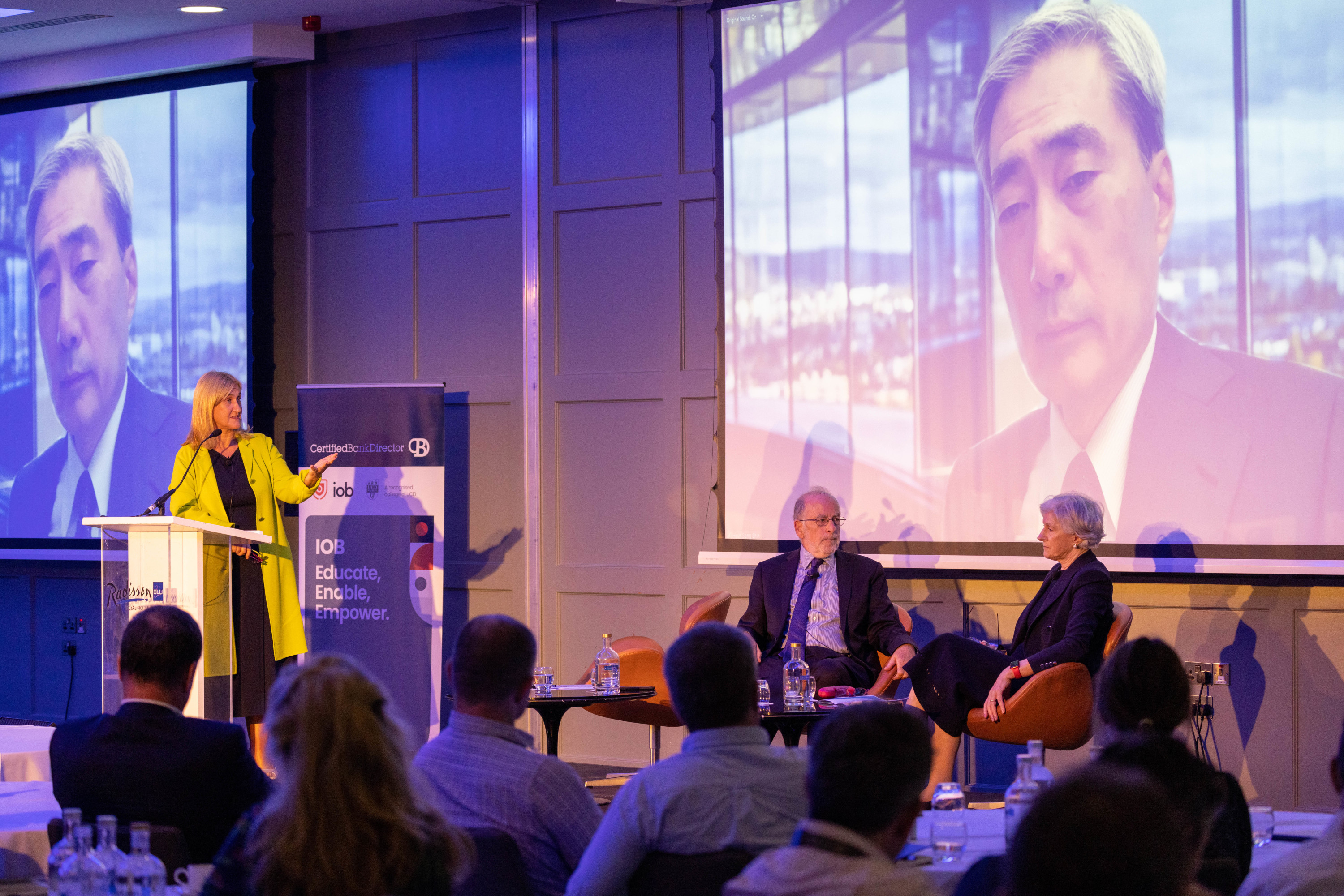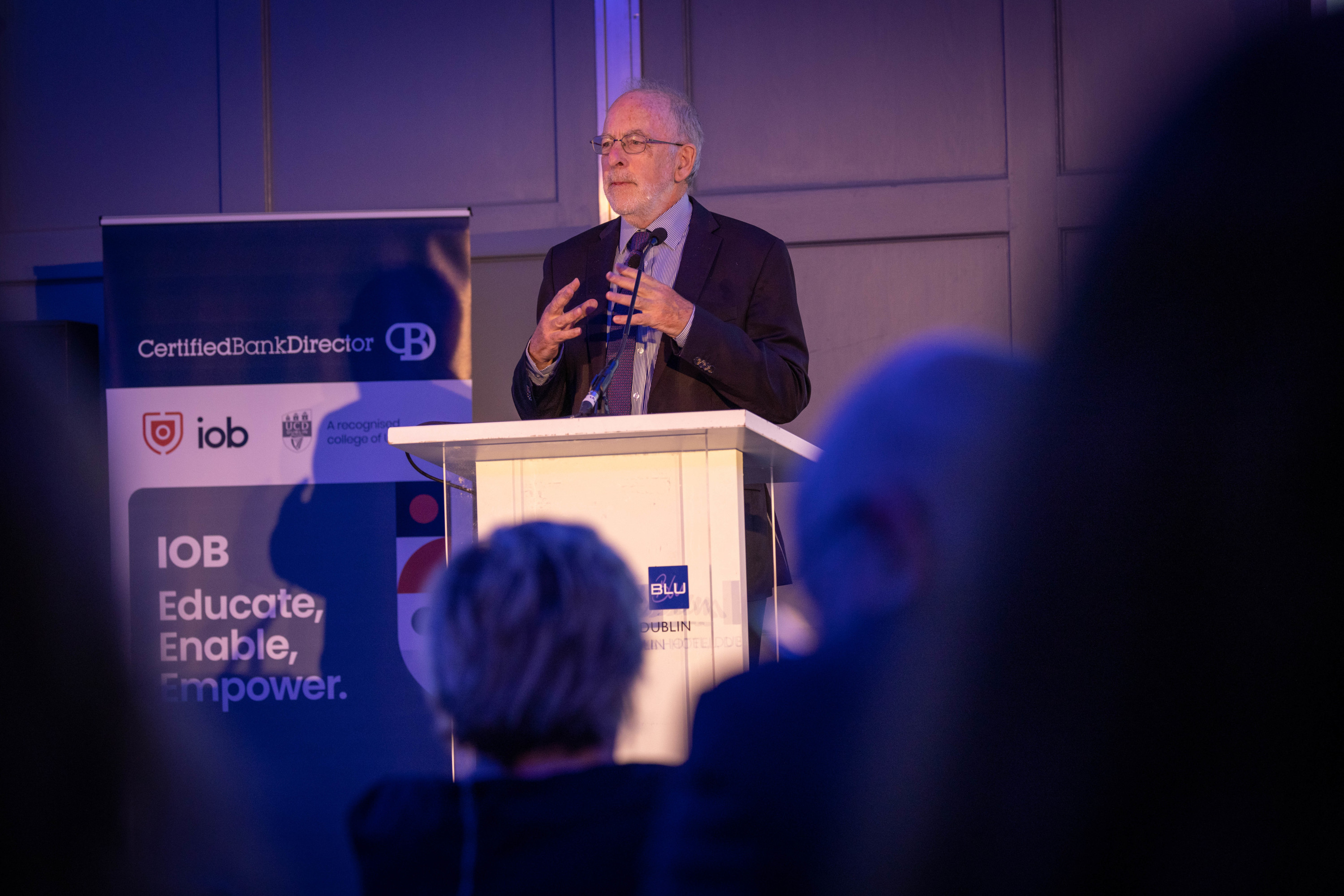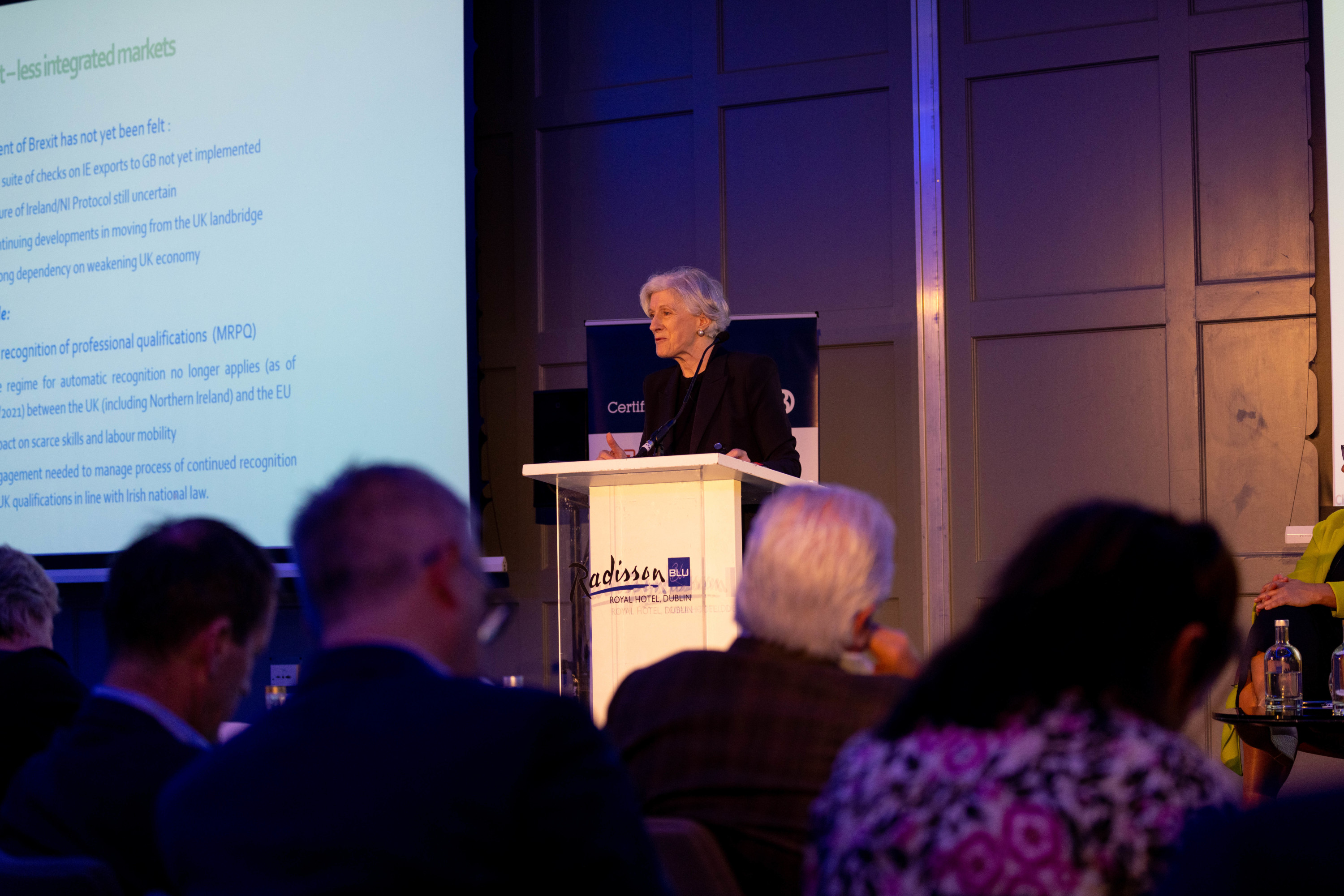Navigating the current economic climate: Key takeaways from the CBD Conference 2022
Earlier this month, we gathered with our Certified Bank Director community for our annual CBD Conference.
In the year that passed since our last conference, so much has changed in banking and financial services. The geo-political backdrop continues to throw up massive social and economic challenges.
At the same time financial services is undergoing a global change to embrace new technology advancements, constantly evolving customer preferences and new regulatory requirements.
In Ireland, with the market exits of KBC and the withdrawal of Ulster Bank from the Republic of Ireland, the Irish retail banking sector is contracting to just three major banks. If we consider that in 2008, we had 12 retail banks, this constitutes the culmination of a seismic shift in the market.
At such an important time for the sector, it was so valuable to bring together senior banking leaders, academic experts and industry thought leaders to discuss the latest trends and regulatory changes impacting the sector.

Economic uncertainty
I had the pleasure of moderating the keynote session at the conference, which featured a presentation by Hyun Song Shin, Economic Advisor with BIS. Hyun’s presentation drew from the recent BIS bulletin discussing the conditions that could lead to a hard or soft landing.
He highlighted how recent shocks to the global economy with rapidly rising energy costs, supply chain issues and labour market shortages, have created financial stress for so many households and an increasingly challenging environment for businesses.
Energy costs are forecasted to continue rising – putting increased pressure on governments to provide support to households to shield them from the full financial impact of energy inflation. Hyun pointed out that with monetary policy “otherwise engaged” as central banks focus on achieving price stability and safeguarding financial stability, fiscal policy would be the only option here.
With inflation at its highest level in decades, there is a growing risk that it could become entrenched. Hyun spoke of the challenges of central banks tightening too much and too quickly, and the increasingly narrow path to a soft landing, or too slowly, and the risks of doing too little and too late, which could require more costly measures down the road.
Hyun also noted that, especially in the UK and US, the labour market had shifted with COVID, leading people to make different decisions about working. Finally, he referred to lessons from the past suggesting that more equal growth globally was needed for more sustainable growth.
Hyun’s presentation was followed by a presentation from Patrick Honohan, former Governor of the Central Bank of Ireland and Honourary Professor with Trinity College Dublin, and Frances Ruane, Chair, National Competitiveness and Productivity Council and Research Affiliate at the ESRI.
The Irish context
Patrick discussed the Irish context and economic outlook. Despite a challenging global environment, Ireland’s GDP has risen by 11% in this year to date. The strong performance has been driven predominantly by Ireland’s multinational tech sector.

While this has likely strengthened the government’s position to offset rising energy costs, and to compensate for unforeseen Covid expenditure, it also points to a potential vulnerability in Ireland’s tax system.
Patrick discussed how, over the last decade, Ireland has become increasingly reliant on corporate tax income from a small number of large multinational companies. He explained, “Ireland’s relative economic success has depended on surfing a tech-driven hyper-globalization that has proven to be prone to experiencing / generating large shocks”.
While we are experiencing strong economic performance now, are we prepared for further shocks that could occur from tax competition issues, inflation or decreased global trade? Frances Ruane spoke about the challenges for Irish businesses, who have been directly impacted by the global downturn in economic outlook and increased geopolitical uncertainty.
With the full extent of the impact of Brexit not yet felt, many Irish businesses also have a strong dependency on a weakening UK economy. Francis warned that the full suite of checks on Irish exports to Great Britain have yet to be implemented and the future of the Ireland / Northern Ireland Protocol is still uncertain.

She highlighted the need for Irish businesses to build on the positive advancements made during the Covid 19 crisis. “‘What we saw during the pandemic – businesses making extraordinary changes – and what we want to see now is capitalisation of those changes, not a reversion back,”
Against a backdrop of economic uncertainty, we are also undergoing two major global transformations with the transition to climate neutrality by 2050 and the digitalisation of the economy.
For Irish banks and financial services organisations, this environment of increased risk and ongoing transformation, heightens the importance of two key areas; risk management and skills development.
Review your risk practices
One conclusion from all this uncertainty was that this is an ideal time to review and update existing risk management tools. The many economic and existential threats currently at play could have wide reaching, compounding implications for banks and their clients and current risk management systems may not be able to capture this. It’s time for boards and senior management to critically analyse the comprehensiveness of their risk management systems.
At a board level, ensuring directors have the capacity and opportunity to discuss the broad range of operating risks at play will be critical. Are contingency or crisis response plans regularly reviewed at board level?
Assessing opportunities to advance digitisation and data analysis within your risk management processes can also help financial services organisations to improve transparency and decision making.
Invest in skills
Throughout the many engaging discussions at the conference, education and skills development emerged as a key requirement for organisations as they seek to meet customer needs and accelerate the transition to a low carbon economy.
As we embark on a critical phase of Ireland’s sustainability journey, banking and financial services organisations will increasingly need to provide guidance and support to their customers and clients – ensuring that new green products and the complex field of ESG reporting and data is accessible and understandable.
We had a broad range of speakers on the topic of sustainable finance, the compliance obligations and the opportunities that arise across the whole financial sector.
A key takeout from this for me was that the entire organisation needs to be familiar with the compliance obligations and the organizational strategy for sustainable finance.
Now is the time to improve knowledge and expertise in sustainable finance and ESG factors within financial services. To support our members to upskill and advance progress in this important area, IOB is expanding its portfolio of sustainable finance learning content and courses - including the world's first sustainable finance programme for compliance professionals, which launches this Autumn.
We are also embedding sustainable finance guidance and principles within all of IOB’s programmes.
Learn as a community
As we adapt and evolve to meet the growing challenges of today’s economic environment and the transition to a low-carbon digital economy, community is so important.
Events like our annual CBD conference – along with over 100 events we hold every year for IOB members - provide us with an opportunity to come together, share common challenges and discuss solutions. As the sector’s education partner, we look forward to many more inspiring days of learning and connection ahead.
Many thanks to Hyun, Patrick, Frances and all our speakers at the Conference who give so generously of their time and expertise.
About the Certified Bank Director Programme
This year marks the 10th anniversary of the Certified Bank Director programme. Since 2010, over 200 senior leaders in banking have completed the programme this specialist governance programme designed specifically for Bank Directors. Learn more about the programme and see how you can become a Certified Bank Director.



